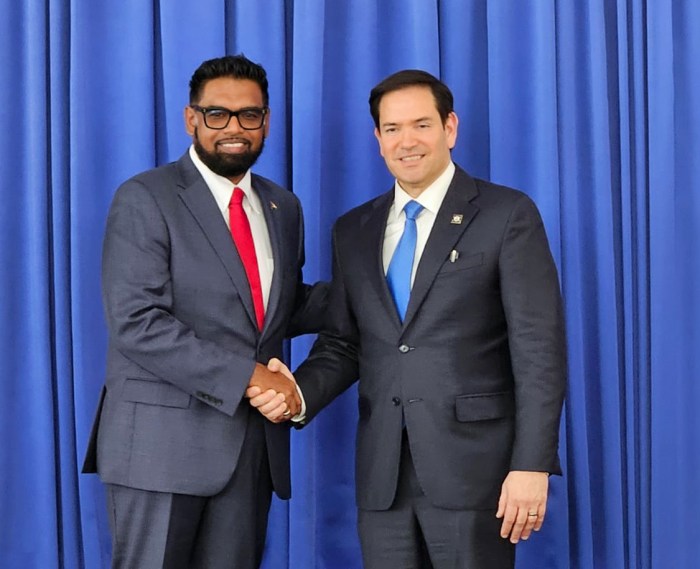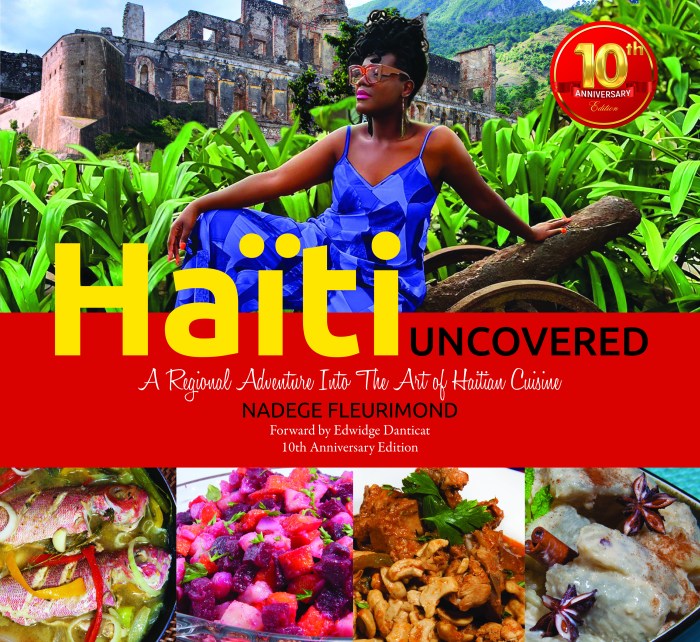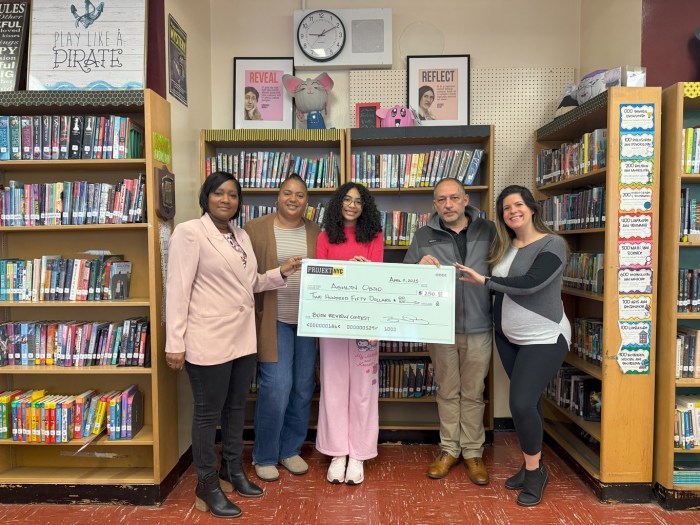Stating that his musical journey has been one of “pure love and perseverance in this unpredictable world of entertainment,” veteran Trinidadian calypsonian Keet Styla, formerly known as Designer, says his dream of winning a GRAMMY Award for calypso and soca music has not dissipated.
“It’s been one of my goals ever since I became a recording artiste many years ago,” Styla, a Jamaica, Queens resident, whose real name is Keith Prescott, told Caribbean Life exclusively. “Although soca is still not considered mainstream music, there is a large underground following that keeps growing daily.
“When I played clubs in NYC (New York City), back in the 80’s, people would ask what was the music called, while dancing to it wholeheartedly,” Styla added. “We have come a long way since those days.
“Social media has helped tremendously,” he continued. “The music has charted sparsely in Britain (Arrow’s ‘Hot, Hot, Hot’; Explainer’s ‘Lorraine’; and, here in the US on billboard, Kevin Lyttle’s ‘Turn Me On’), but we have not been able to maintain sustainability nor the respect or support of the major labels.
“We just have to continue investing in our business, elevating the level of our productions musically and visually, and keep lobbying to get a category added to the (GRAMMY) awards for calypso/soca music,” he said. “Our Jamaican brothers and sisters have done it, and so can we.”
Styla, who has been residing in the US for over three decades, said he has seen how diverse audiences have responded favorably to soca music, despite lack of mainstream recognition, even with live shows with his band, Therapi.
“That keeps my passion burning bright,” he said. “I’ve put in the work and made the sacrifices; so, I feel the best is yet to come in this chapter of my life.
“As the chorus of my 2020 release sings, ‘Ah Want More! Ah Want More! Ah Want More!,’” he added.
Styla said his musical journey “all began back in Success Village, Laventille, on the north western part of the island, Trinidad.
“The eldest of three children, born to David and Grace Prescott, I remember at 5 years old, singing harmony, with my mom at home, to popular songs we would hear on the radio,” he said. “As I grew older, I would sing at music festivals at school, talent shows in the community and on the then popular children radio show called ‘Auntie Kay’, where I placed 3rd in a calypso competition, when I was 8 years old.”
Shortly afterwards, Styla said his family moved to the eastern part of the island, to Tunapuna, where he continued growing musically, learning to accompany himself on the guitar, took piano lessons, joined the school combo band, and played at graduations and other events.
Styla said his father, an educator by profession, who had a brief stint as a calypsonian, had stopped singing, because he thought he was a better writer.
“So, he composed calypsos for me to perform at various competitions and events,” he said.
Observing his progress throughout the years, Styla said his father introduced him to the “Calypso Tents,” where veteran calypso stars and icons – such as the Mighty Sparrow, Lord Kitchener, Mighty Chalkdust, Black Stalin, Mighty Shadow and Calypso Rose – would perform nightly during the carnival season throughout twin-island republic of Trinidad and Tobago.
Styla said his entry into the “Calypso Tent” world in 1978 was “not all encouraging at first”, because he was not an official member of the cast of the “Calypso Theatre.”
“So, appearances there was limited, although I won ‘Auntie Kay’s’ calypso competition two years in a row – ’77 and ’78 – and another calypso competition in Arima that year,” he said. “They said I had to pay my dues. So, my dad took me to ‘The Kingdom Of The Wizards’, which was managed by William Monroe, with Shadow headlining the cast of that show.”
Styla said there is where he got his break, singing every night on the program for two weeks until the carnival was over.
He said he was a 14-year-old student of Five Rivers Junior Secondary School in the day and calypsonian at night.
Style said his mom was not comfortable with it at first but quickly “warmed up.”
He said he was also performing under the sobriquet “Designer”, a name his father gave him.
The following year, Styla said Shadow formed his own tent, managed by him and Earl Patterson, called the “Masters Den.” Years later, Styla said Ellis Chow Lin On joined the management team.
He said he signed his first contract with “Masters Den”; made his first recording, “Disco Baby”, written and produced by Shadow; made his first of seven semifinal appearances throughout the years for the National Calypso Monarchy; and came second in the National Junior Calypso Monarch final, while still attending high school at Hillview College.
Styla said “a little controversy ensued” when officials claimed that he should not be competing with the juniors, because he was “already earning money as a professional.”
“So, I believe, thereafter, they changed the rule to such,” he said.
Styla said he spent five years as a member of the cast of the “Masters Den”, during which he graduated from high school; made two National Calypso Monarch finals appearances in 1982 and 1983; and made his first hit record, “Feeling Nice”, written by him and Superblue, with music arranged by Ed Watson on Charlie’s Records, based in Brooklyn.
“The song was popular with soca lovers throughout the world,” said Styla, stating that he was booked to perform at shows in Toronto, Canada; Brooklyn; and Los Angeles, CA.
Years later, he said a version of the song was featured in the American movie “Sex Monster”.
Styla said he released his first album, “My Burning Desire”, in 1984, with he and his father writing all of the songs (“we became songwriting partners”), with music arranged by Vincentian-born, pre-eminent Caribbean musical arranger Dr. Frankie McIntosh on the Charlie’s Record Label.
By 1985, Styla said he spent more time in the United States; looking to expand his career in the entertainment industry; taking private vocal and sight singing classes; and “playing clubs” in the city, such as at Irving Plaza, SOB’s and Dancerteria.
Styla also said he “played festivals” in Jamaica and Colombia, learning more about the music business; doing lots of demos for record companies; becoming a session musician; singing background vocals on many independent recordings for soca/calypso and reggae artists; and doing jingles for radio in the corporate market.
During this time, Styla said he took a hiatus, for three years, from Trinidad and Tobago carnival but made records with GRAMMY Award-winning producer Ralph McDonald, creating some fusion calypso music on his record label, “Rosebud Records.”
Styla said the EP was titled “Jump With Me”, with three songs written by him and his father, with music arranged by Charles Dougherty, Joe Brown and him. The title track was written by Michael Boothman and William Salter, and produced by McDonald.
After working with producers Boothman and Keith Diamond, of Caribbean Queen fame, Styla said the collaboration produced the dance track, “Can’t Stop Dancing.”
He said he also performed some shows in Trinidad and Tobago, New York and France with Boothman’s Kysofusion.
“The ‘Diamond Project’, as I call it, never fully got off the ground,” he said. “I was going to be part of a group. I was very excited, and the music sounded great. But contract negotiations stalled and, before it could resume, Keith passed away suddenly.”
Styla said he also “got involved” with another project, “Calypso for Africa,” “donating” his “time and vocals to the song, ‘Now Is The Time,’” which featured about 75 calypso artistes from the Caribbean, “which was our ‘We are the World’”.
In the 90s, Styla said he was “back in the thick of things with Trinidad carnival,” recording “Pan By Storm”, with Ken “Professor” Philmore, written by Philmore and Andrea Phillips, which was the “tune of choice” for Vat 19 Fonclaire Steel Orchestra in the 1990 National Panorama Competition.
Styla said the song has become an ode to the steel-drum movement the world over.
He said he followed up “Pan By Storm” a year later with “Pan Ecstasy”, another Philmore/Phillips composition, and “Calypso”, a track penned by Philmore and Styla.
Styla said he won “Best Male Vocalist” at the “Sunshine Awards” in 1991.
“1992 was even better,” he said, recording “Rati-Ray”, penned by Dennis “Merchant” Williams-Franklyn on the JW Record Label, based in Brooklyn.
After recording “Rati-Ray,” Styla said he was booked in the Caribbean, Canada, US and England.
“Wherever Soca music was being played, ‘Rati-Ray’ was on the playlist,” he said, disclosing that he won the award for “Hit of the Year” by the Brooklyn-based Everybody’s magazine, and that Guyanese-born Eddie Grant, of Electric Avenue fame, “covered the song.”
On becoming a US resident, Styla said he worked with the legendary producer/arranger Leston Paul of JW Records, recording three albums: “All The Way Up”, “Going De Distance” and “Designer.”
In addition, Styla said he recorded a few singles, such as “I Love Christmas,” a popular track during the Christmas holidays in Trinidad and Tobago; and received his second Sunshine Award in 1996 for “Best Male Vocalist.”
He said he “played” the Montreal Jazz Festival, and “played some college dates” on the north-east coast of the US with Jamaican artistes Lady Saw, Beenie Man and Bounty Killer.
After getting an offer to join another band/project with a pop-rock-reggae-hip-hop flavor, based on Long Island, called “N.E. Colour,” Styla said they did some showcases, few shows and lots of demos, while he sang lead and background vocals on all the songs.
But, during his time with “N.E. Colour”, Styla said he started thinking about changing his stage name, came up with a few ideas, got suggestions, but he “wasn’t ready.”
In the interim, he said he continued on his musical journey, with some recordings with the Brooklyn-based Straker Records, but they were mostly Christmas music.
He said he wrote and sang two songs, “Uncle Perez” and “My Friend,” on one of those holiday recordings, and also did cover versions of “Hark The Herald Angel Sing” and “Everyday Would Be Like A Holiday” on two other compilations, produced/arranged by Philip Nichols.
During this time, Styla said he also worked with Godfrey “Cherry” Ince, the bassist for the St. Vincent and the Grenadines-rooted, Brooklyn-based band, Rebels.
Styla said he was featured on two albums with Rebels: The song, “Soca Train”, was on the first album, “East Meets West,” in 1997, which was very popular at Vincy Mas that year.



























